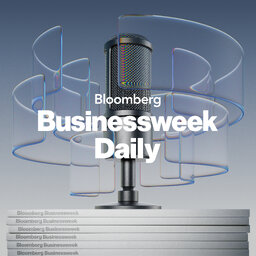Bloomberg Businessweek Weekend - January 10th, 2025
Featuring some of our favorite conversations of the week from our daily radio show "Bloomberg Businessweek."
Hosted by Carol Massar and Tim Stenovec
Hear the show live at 2PM ET on WBBR 1130 AM New York, Bloomberg 92.9 FM Boston, WDCH 99.1 FM in Washington D.C. Metro, Sirius/XM channel 121, on the Bloomberg Business App, Radio.com, the iHeartRadio app and at Bloomberg.com/audio.
You can also watch Bloomberg Businessweek on YouTube - just search for Bloomberg Global News.
Like us at Bloomberg Radio on Facebook and follow us on Twitter @carolmassar @timsteno and @BW
In 1 playlist(s)
Bloomberg Businessweek
Listen for reporting from the magazine that helps global leaders stay ahead. Hosts Carol Massar an…Social links
Follow podcast
Recent clips

Instant Reaction: US, Israel Attack Iran as Trump Urges Regime Change
25:54

Bloomberg Businessweek Weekend - February 27th, 2026
38:36

Trump Orders US Agencies to Drop Anthropic After Pentagon Feud
41:44
 Bloomberg Businessweek
Bloomberg Businessweek